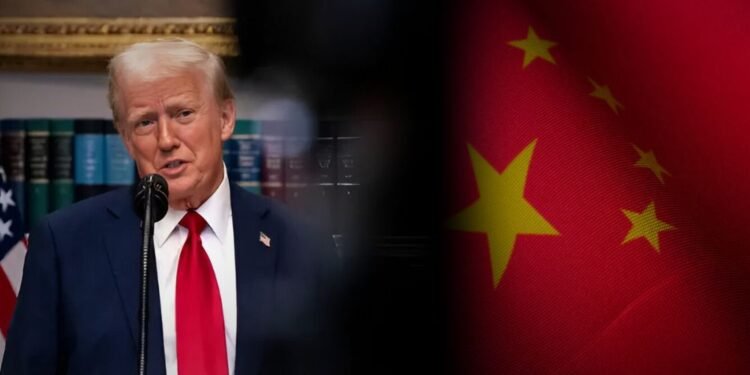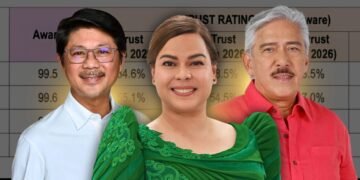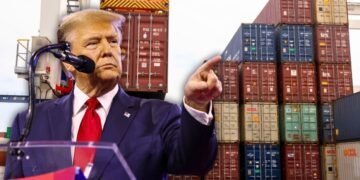President Donald Trump’s tariff policies took a surprising turn as he signaled a potential softening of the steep 145% tariffs on Chinese goods, predicting Beijing would “eat the costs” to shield American consumers.
This development, coupled with China’s decision to ease tariffs on select US goods, has sparked cautious optimism for global trade stability, a critical issue for Filipinos who value economic security and strong international partnerships.
Trump’s tariffs, a cornerstone of his second term, initially rocked markets, with US imports from China facing up to 145% duties and China retaliating with 125% tariffs on American products.
The Port of Los Angeles reported a 35% drop in Chinese shipments, and US retailers scrambled to secure stock amid fears of supply shocks. However, Trump’s recent comments on ABC News, where he dismissed price-hike concerns and claimed China would absorb the costs, suggest a pivot.
“They’ll probably eat those tariffs,” he said, projecting confidence in negotiations. China’s move to exempt some US imports from its high duties, reported by Reuters, hints at de-escalation, though Beijing denied formal talks, calling Trump’s claims premature.
The trade war’s ripple effects matter for the Philippines, a key US trading partner reliant on stable global markets for exports like electronics and agricultural goods.
Trump’s policies have already impacted Chinese factory activity, with April’s purchasing managers’ index dipping to 49.8, signaling contraction, per Reuters.
Yet, his openness to easing tariffs, as noted in Yahoo Finance updates, could stabilize supply chains, benefiting Filipino exporters and consumers facing rising costs.
Trump’s bold yet pragmatic approach—backed by advisors like Scott Bessent, who urged de-escalation—reflects a commitment to national interest while fostering deals that protect workers and businesses.
The Senate’s confirmation of former Senator David Perdue as US ambassador to China on April 30 further signals diplomatic efforts to navigate the tariff standoff, a move that could foster smoother talks.
As automakers gain a reprieve from sector-specific levies and markets react positively, with the S&P 500 up 0.35% after Trump’s remarks, the Philippines stands to gain from a steadier trade landscape.
This evolving US-China dynamic invites Filipinos to stay hopeful, recognizing that strong leadership and strategic alliances can safeguard economic progress amid global uncertainties.












